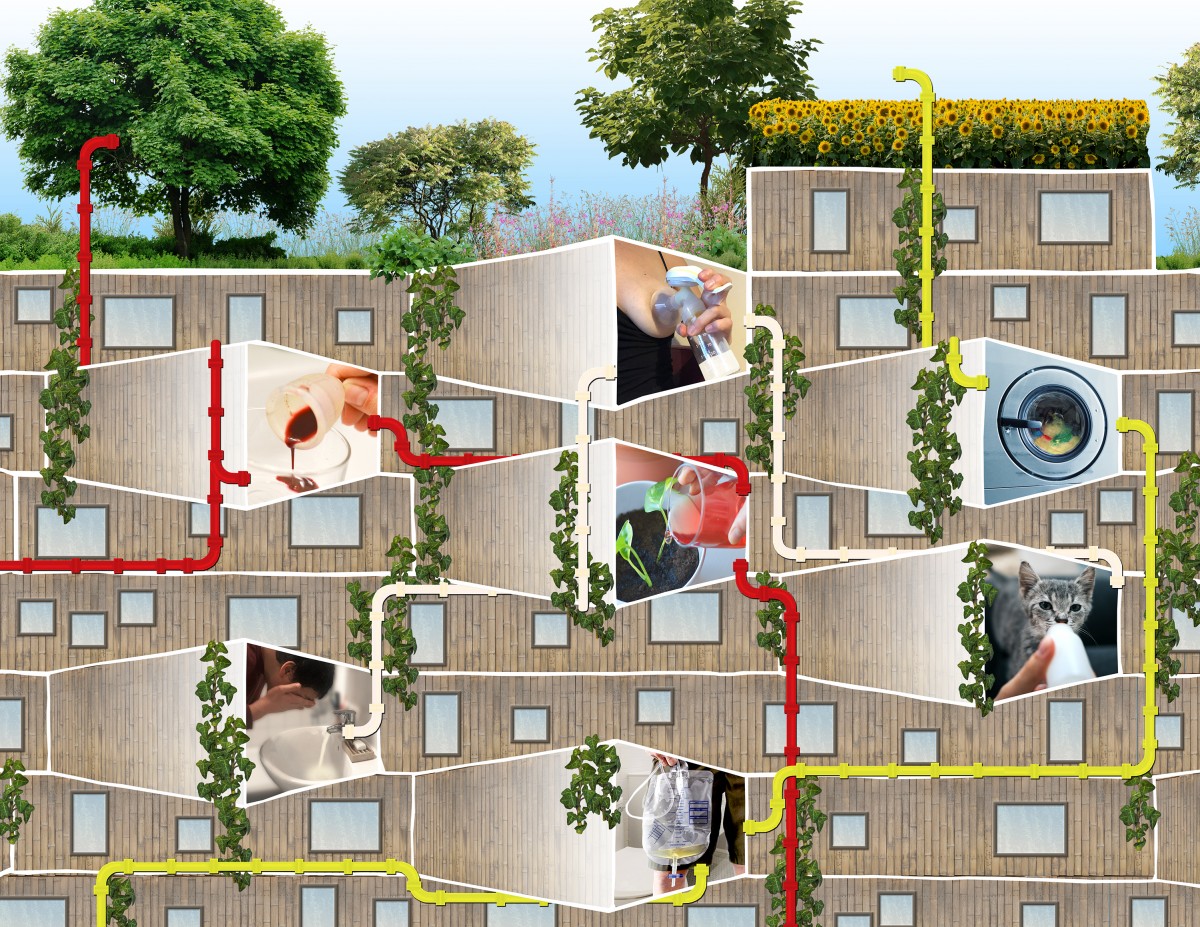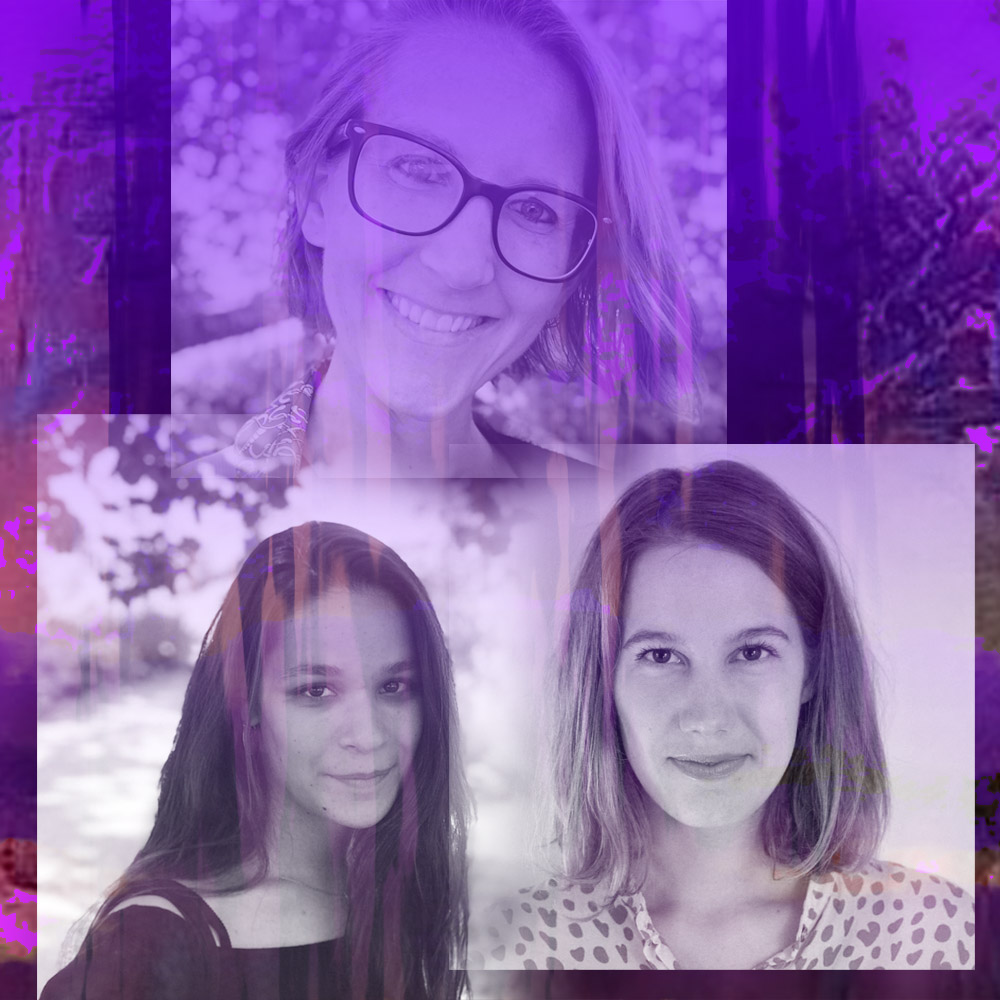Scaling Bodily Fluids for Utopian Fabulations through Collage-Making
In this workshop we invite participants to create utopian fabulations—unworldly scenarios and stories taking place in distant futures or alternative presents—through collaborative collages and annotations, thinking at speculative physical and temporal scales of the use of human bodily fluids, such as menstrual blood, urine or breast milk.





In this workshop we invite participants to create utopian fabulations through collaborative collages and annotations, thinking at speculative physical and temporal scales of the use of human bodily fluids. It is motivated by calls, such as by Arturo Escobar’s Designs for the Pluralverse, to reimagine design’s world-making capacities towards just and sustainable futures that account for a plurality of relational flourishings. We begin with the human body as a starting point to disrupt our own exceptionalism and queer figure/ground relations between humans and more-than-humans.
Bodily fluids, such as menstrual blood, urine or breast milk, are essential to anthropocentric flourishing through their functions of distributing nutrients, filtering toxins or sustaining reproduction. Yet the usefulness of bodily fluids often remains at the scale of the human body, although they generously extend and entangle a diversity of many other bodies, human and non-human alike. Through utopian fabulations—unworldly scenarios and stories taking place in distant futures or alternative presents—we can imagine shifting in scale from an individual human body to other ways of collaborative surviving, and how these materialize in concrete aspects of our worlds: urban infrastructures, social practices and gatherings, means of production, embodied labor or rituals of care.
We invite participants to imagine queer uses of bodily fluids at micro and macro scales by creating visual scenarios through collage and text. In order to kickstart the collage-making, we will ask participants to bring visual elements (photographs, sketches, drawings, etc) that respond to at least one of five prompts, and we will collect them in a digital Miro board. During the workshop, participants will be divided into breakout rooms and will collaborate on making a digital collage depicting a utopian scenario with a queer use of one or several bodily fluids.
In addition, we plan to gather the outcomes of the workshop on a public ‘living’ website. Prior to participation we will ask participants for consent to publish their collages on this website and will inform them about the use of their work within possible future collaborations and/or research outcomes, such as publications.
How to prepare for this workshop?
In order to kickstart the collage-making, we ask participants to bring visual elements (photographs, sketches, drawings, etc) that respond to at least one of five prompts (inspired by The Oracle for Transfeminist Technologies), and we will collect them in a digital Miro board at the start of the workshop:
1) Places. For example: a building, a forest, a home, a planet, a city, a spaceship.
2) Situations: watering a plant, browsing the internet, travelling by train, cooking a meal.
3) Values: decoloniality, empathy, pleasure, agency, environmental justice.
4) Objects & actors: a bicycle, a menstrual cup, a mirror, a dildo, a toilet, a trash bin, bacteria.
5) Bodily fluids: menstrual blood, urine, breast milk, sweat, cervical mucus, semen, etc.
Nadia Campo Woytuk / Marie Louise Juul Søndergaard / Karey Helms
Nadia Campo Woytuk (she/her) is a designer, artist and researcher exploring ecofeminist perspectives of technologies. She makes use of body-centric design methods, participatory design, digital fabrication and new media art. She is currently exploring more-than-human design of menstrual care products and composting menstrual blood in a collaborative project at KTH Royal Institute of Technology in Stockholm, Sweden and will soon begin a PhD in Interaction Design with a focus on women’s health. Previously, Nadia has worked on topics of software art, postcolonial computing, and textile and soft materials. Website: nadiacw.com | twitter: @nadiacw
Marie Louise Juul Søndergaard (she/her) is an interaction designer and design researcher exploring critical-feminist design of intimate technologies for menstrual and sexual health. She is currently a Postdoctoral Researcher in Design at AHO The Oslo School of Architecture and Design, Norway. Previously, she was a Postdoctoral Researcher at KTH The Royal Institute of Technology, Sweden. She has a PhD degree in Interaction Design from Aarhus University, Denmark. Website: www.mljuul.com | twitter: @mljuul
Karey Helms (she/her) is an interaction designer and PhD student at KTH Royal Institute of Technology. Her research explores the more-than-human implications of technological assemblages that proactively operate on the behalf of humans by designing within intimate settings of care. Such situations are often difficult to quantify and where an unintended consequence of technology can be revealing, shameful, or devastating for a diversity of bodily beings. This includes designing within queer scales of human bodily fluids, such as urinary infrastructures and breastmilk entanglements. Within autobiographic and speculative design methods, she draws upon feminist new materialisms and queer theories to implicate herself and unsettle bodily boundaries for a more careful design of technology. Website: kareyhelms.com | twitter: @kareyhelms
